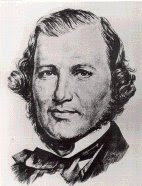The Canadian state is a lot of things but morally neutral is not one of them. Surprisingly, however, the idea that modern liberal and democratic governments constitute Impartial Observers enforcing no particular moral code, remaining above the scrum and delivering unprejudiced decisions in all instances, is strangely popular among Liberals and, stranger yet, among Conservatives as well.
David Cameron, leader of the British Columbian Conservative Party presented this view in a recent speech in Glasgow which earned considerable media attention:
I think the time has come for me to speak out about something that has been troubling me for a long time. I have not found the words to say it sensitively. And then I realised, that is the whole point.
We as a society have been far too sensitive. In order to avoid injury to people's feelings, in order to avoid appearing judgemental, we have failed to say what needs to be said. We have seen a decades-long erosion of responsibility, of social virtue, of self-discipline, respect for others, deferring gratification instead of instant gratification.
Instead we prefer moral neutrality, a refusal to make judgments about what is good and bad behaviour, right and wrong behaviour. Bad. Good. Right. Wrong. These are words that our political system and our public sector scarcely dare use any more.
I sympathize with Cameron's position but I dissent from his conclusion. We live under anything but a morally neutral state. What he means, clearly, is that he does not support the kind of morality our state currently endorses and enforces.
Pierre Lemieux explains:
So, we are living under a morally neutral state? Try telling this to individuals who are denormalized because they smoke tobacco or are jailed because they consume drugs or provide them to consumers, who have their children seized by the state because they don’t teach them state-approved morals, who pay taxes to support government programs based on egalitarian ethics or other state activities they disprove of, who are brainwashed by the subsidized environmental religion, or who are prohibited by law (in theory or in practice) from defending themselves against gun- or knife-wielding thugs. All these people and others have moral values imposed on them by the state, that is, by force. Nothing morally neutral about that.
The best example, perhaps, is the recent troubles with free speech and the Canadian Human Rights Commissions. It is impossible to argue that the prosecution of Steyn and Levant for "hate speech" and "Islamophobia" does not assume the morality of the left, to wit, that our freedom of expression can be properly subordinated to a newly-enforceable "right" not to be insulted.
Ultimately, I conclude with Lemieux:
What is needed in Canada as in the U.K. is not a wishy-washy retreat from a neutral morality that doesn’t exist, a substitution of Liberal fantasies for Conservative hang-ups, but a revolution that would abolish the state’s moral authority and let individuals at liberty to make their own moral choices. The solution is to minimize the moral content of public policy and require that the state avoid taking sides between its citizens, except in matters of murder and other violent crimes. Such a true morally neutral state would allow the re-establishment of efficient private morality.
Cameron's article represents a strong and passionate advocacy of the traditional Canadian values of freedom and liberalism. Read the whole thing for a more nuanced analysis of the question of state neutrality.












|